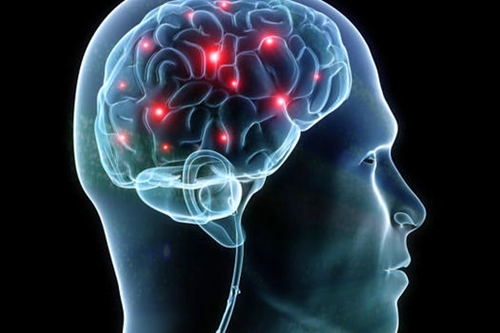2 March 2018. First results from a clinical trial show an experimental therapy reduces production of a protein damaging nerve cells in people with Huntington disease. The treatment is made by the biotechnology company Ionis Pharmaceuticals in Carlsbad, California and reported at a meeting this week of the CHDI Foundation in Palm Springs, California.
The trial is testing the therapy code-named Ionis-HTTRx designed to treat individuals with Huntington disease, an inherited disorder in which nerve cells in certain parts of the brain degenerate. The condition is caused by a defect in a chromosome where a portion of the DNA repeats many more times than normal, and because the disease starts in the DNA, it is passed along from parents to children. Huntington disease is marked by hallucinations, restlessness, moodiness, paranoia, or psychosis, and in some cases progressive dementia. Huntington Disease Society of America estimates 30,000 people in the U.S. have the disorder.
Ionis-HTTRx is a product of the company’s technology platform known as antisense, which uses short DNA or RNA sequences, called oligonucleotides, designed to complement a specific gene sequence. Ionis says it designs antisense drugs to interact precisely with a specific sequence of RNA, with many of the therapies in its pipeline binding to messenger RNAs, or mRNAs, and blocking the production of disease-causing proteins. In this case, Ionis-HTTRx aims to reduce production of a mutation in the huntingtin or HTT protein causing Huntington disease.
The early- and intermediate-stage clinical trial enrolled 46 individuals with early-manifest Huntington disease. Participants were randomly assigned to receive injections in their spinal cords of either Ionis-HTTRx at various dosage levels or a placebo every 4 weeks for 13 weeks, then monitored for another 29 weeks. The research team looked primarily for indications of safety and tolerability of Ionis-HTTRx, but also activity of the therapy in patients, including reductions in the mutated HTT protein in their cerebral spinal fluid..
The results show an average reduction in concentrations of the mutated HTT protein of about 40 percent, with reductions as high as 60 percent in some participants. The company says these reductions exceed its preclinical findings in lab animals, and correspond to reductions of 55 to 85 percent of the mutated HTT protein in the cortex region of the brain where the protein is expressed. Ionis says no serious adverse effects occurred, and the mild to moderate adverse effects were not related to the treatments.
The company says Ionis-HTTRx is the first treatment to show reductions in the mutated HTT protein. The global drug maker Roche is licensing Ionis-HTTRx from Ionis, and plans a later-stage clinical trial testing the therapy with larger samples and for longer-term effects.
More from Science and Enterprise:
- Pharma, Biotech Partner on Neuro Therapies in $1.1B Deal
- Report – Industry Pain, Addiction Drug Efforts Flagging
- Biotech, Univ. Lab Partner on Stem Cells for Alzheimer’s
- Highly Targeted Opioid Designed to Avoid Side Effects
- Sangamo, Pfizer Partner on ALS Gene Therapy
* * *


 RSS - Posts
RSS - Posts
You must be logged in to post a comment.